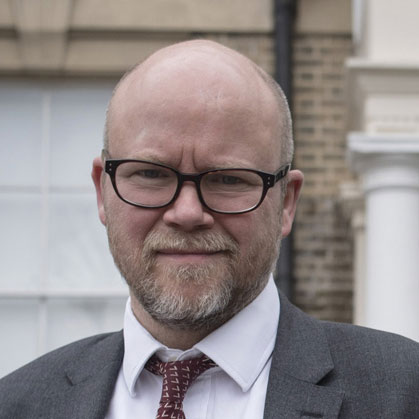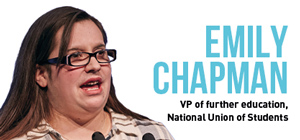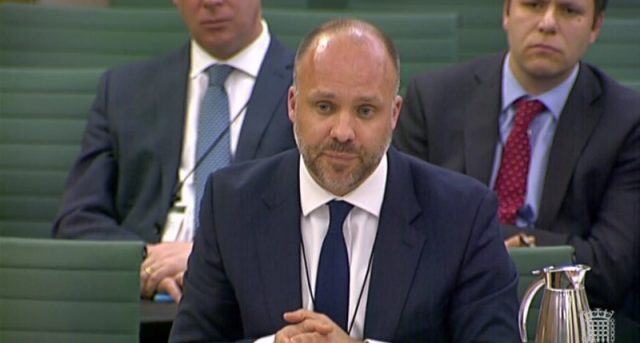FE providers are rallying to help more than 1,000 apprentices affected by the collapse of the outsourcing giant Carillion, but many more places are needed to ensure everyone’s qualifications are saved.
The UK’s largest employer of construction apprentices went into liquidation on Monday, leaving the future of around 1,400 trainees, mostly 16- to 18-year-olds, uncertain.
Since then, the Construction Industry Training Board has asked all former Carillion apprentices to get in touch so it can help them continue their training – and for employers to come forward to take them on.
FE providers have now started offering support by opening their doors to those affected.
“We take our responsibility to our local community seriously and we’re working with CITB, our local authority partners, and directly with students and apprentices who have had their learning disrupted,” said Simon Cook, principal of Mid-Kent College, which ended a subcontracting arrangement with Carillion in June last year.
“Our priority at this stage is to identify the needs of those students, and the most appropriate and effective ways we can support them.”
BMet College also stopped working with Carillion last year but has offered similar aid.
Our priority is to identify the needs of those students, and the most appropriate and effective ways we can support them
“As we have a longstanding partnership with the CITB, we are engaged with them to see if there is any way that those apprentices without a training provider may still complete their qualifications,” a spokesperson told FE Week.
Middlesbrough College added that it is currently working with one Carillion apprentice to “find an alternative apprenticeship position”.
Merseyside and Cheshire have the largest number (235) of Carillion apprentices to place. All of those trainees were invited to an event run by the CITB today at Hugh Baird College in Liverpool.
“We are very keen to support the apprentices and ensure that they can continue their education,” said Vicky Edwards, assistant principal at Hugh Baird College.
“Thanks to our longstanding partnership with CITB and extensive links with employers across the region, we are confident that we can work together to help place as many apprentices as possible.”
Apprentices left anxious about their futures need all the support and advice they can get, according to Liz Green, the mother of one former Carillion trainee, who she says has been “kept in the dark” since the beginning of the week.
Her son, Alex, had six months left of his level two construction apprenticeship before he was told about the collapse on Monday when he got home from his placement in Birmingham.
The 19-year-old was contacted the next day and told he would be paid as normal until the end of the month, but since then communication has been sparse, and he now fears he’ll end up with no qualification.
“I think it’s disgraceful,” Ms Green told FE Week. “The whole situation is a mess and has been handled badly from the start.
“The staff and apprentices have been kept in the dark. The managers of Carillion obviously knew what was ahead and yet they still carried on.
“They offered apprenticeships to school leavers as recently as August and September. I can only hope that someone steps in to protect the services they provide.”
Carillion was the second biggest construction firm in the UK.
Its apprentices learned at its training division, Carillion Training Services, primarily in bricklaying, carpentry and joinery.
The staff and apprentices have been kept in the dark
The provider held a £6.5 million ESFA contract last year and was rated ‘requires improvement’ by Ofsted in December 2016.
The CITB said it has worked with the ESFA to ensure funding is available so that it can “continue to support the training for Carillion apprentices”.
A spokesperson added that it has attempted to contact all 1,400 apprentices, but that not everyone has been reached. It hopes to start placing the first apprentices with new employers as early as next week.
Meanwhile, political screws are turning on new the education secretary Damian Hinds to provide clear information on how the government will safeguard the apprentices.
The chair of the education select committee, Robert Halfon, wrote to him yesterday asking for an “assessment” of how many apprentices may be affected through the longer Carillion supply chain.
“The committee understands that the ESFA is working closely with the CITB and hope that this will result in no learner losing out through no fault of their own,” he wrote.
Shadow skills minister Gordon Marsden has also written to Anne Milton, asking the skills and apprenticeships minister what she is doing to “assess the potential hit that the skills sector could suffer as a result and what contingencies are you putting in place for this?” You can read his full letter here.
A Department for Education spokesperson told FE Week on Monday that it has “taken steps to protect learners by transferring the training of Carillion apprentices to the CITB”.
The CITB is hosting free support events on January 18 and 19 for any Carillion apprentices in need of face-to-face advice.
They can contact CITB on carillion.apprenticeshipsupport@citb.co.uk or 0344 994 4010.




